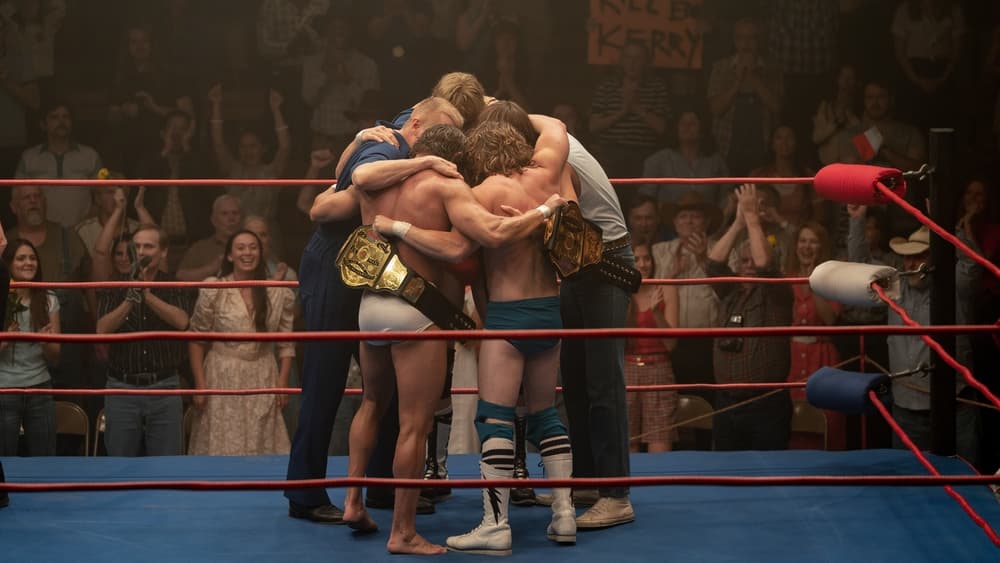I don’t know a thing about wrestling. The idea of a movie about the Von Erich family meant nothing to me going in — I didn’t know anything about them, though I figured someone died given the tragic nature of the marketing and the reactions of people who had seen it. When I sat down, I was unprepared for the abundance of misery that would hit me over the next couple of hours.
If this film were fiction, the number of bad things that happen to this family would feel ridiculously over the top. Compared to something like “The Whale,” in which the misery porn is so manufactured that it becomes even more impossible to empathize with the main character after every overly cruel thing that happens to him. Some artistic liberties are taken with the specifics of certain events, but the emotional core of the events is true. As a result, the film creates a constant sense of dread by telegraphing from the outset what will happen. You can’t stop it. There’s no surprise. Almost every single one of these boys will inevitably die.
The lack of surprise in the narrative puts more pressure on the ensemble performances to carry the emotional weight, and each actor is on their A-game here. Zac Efron has to dial down the charisma and play the more internal, soft-spoken Kevin Von Erich. His physicality, primarily his unrecognizably buff body, gives us a side of Efron we have never seen before. Jeremy Allen-White brings so much energy as the wild man Kerry Von Erich, and the film levels up once he enters the picture. Harris Dickinson, as David Von Erich, brings the open, caring, charismatic personality that balances out the trio. The key performance to making the whole thing work is Holt McCallany as Fritz Von Erich. He has the trickiest role where he essentially has to play the villain of the story, an understated evil whose ego and fear pushed his sons too hard and led to their deaths, but also can’t be evil enough that we wouldn’t understand why the family would love and respect him. He finds the perfect balance and gives the best performance in the film, even if it's the least showy.
“The Iron Claw” isn’t subversive, but it is somewhat successful at avoiding a lot of the cliches of the sports drama. There is no triumph here, partly because the sport isn’t the film’s focus, but also because there is no success. The best and most critical scene happens right after Kerry has won the World Championship belt. Kevin walks into the kitchen late at night to find Kerry sitting with his belt in the dark and drinking a beer. He tells Kevin how empty he feels. He has reached the mountaintop. The only way to go is down. He has honored his deceased brother David by winning the belt that would have been his, but David is still gone. If it hasn’t set in yet that the tragedy of this family is just beginning, get ready for another hour of unrelenting pain.

